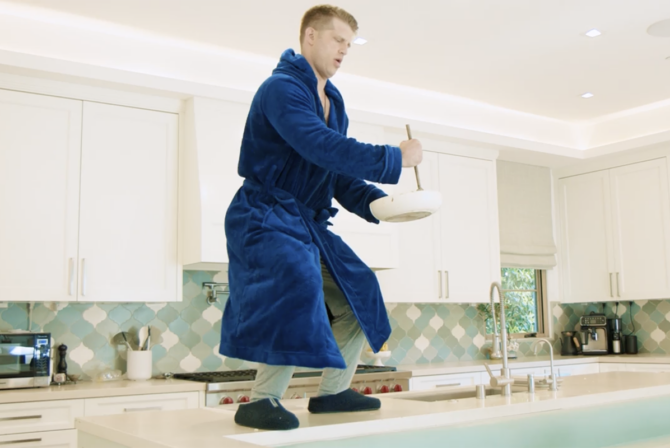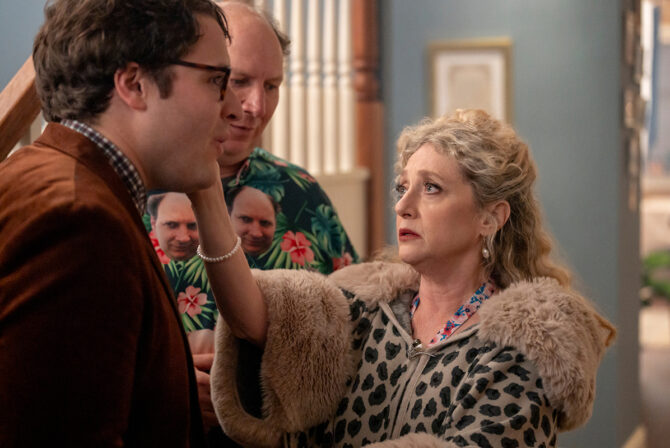Five years ago, newly facing the prospect of having our idiosyncratic and spirited 3-year-old son psychologically assessed, I skeptically wondered how a complete stranger and a battery of tests could ever reflect his personality and spirit. We had brought him to the Los Angeles office of Dr. Rita Eichenstein after repeated concerned conversations with his much beloved teacher and the preschool director. A friend had read several mentions of Dr. Eichenstein on a parenting listserv, and after considering a handful of other recommended neuropsychologists, I chose Dr. Eichenstein based largely on her already-insightful-to-the-uninitiated website.
Dr. Eichenstein (or “Dr. Rita” as our son called her) approaches each child as a whole person, so that underneath all the dizzying quantitative information and professional jargon presented to us, she seemed to get our son. Granted it’s her job, but we were amazed nonetheless.
Dr. Eichenstein has finessed and distilled her decades of experience and empathy into the recently published book, “Not What I Expected: Help and Hope for Parents of Atypical Children” (Perigee Books). She is also the resident expert on actress Felicity Huffman’s What The Flicka? parenting blog, where she recently posted a Self-Care Menu for parents of atypical children. Here she talked to me about the motivation behind pursuing her latest book project that addresses the needs of this particularly overlooked group.
This interview has been condensed and edited.
Why did you write this book?
I’ve worked with kids my whole life. After many years of studying psychology and human development, from graduate school to postdoc in neuropsychology, I’ve focused on children, so it’s not obvious I’d write for parents. But after so many years of doing this, I’d hand parents my report and think, What are they thinking? How are they? What are they doing after they leave the office? How can I help?
It’s so revolutionary, but in the whole study of psychology, through Freud up through this moment, no one has considered the psychology of parents. It’s mind blowing. With all the research and theories, it’s all about attachment and the mother-child interaction. It’s beautiful, but it’s all about the child. No one considers that parents have needs all their own.
Parents are not robots. I can’t spend two hours and hand them a thick phone book of a report and say, “See ya.” The story is just beginning.
So you’re telling parents it’s OK to take care of yourself?
Not only is it OK, it is essential. A parent who takes care of him or herself is role modeling how to be an integrated person who can be a full person, take care of his or her own needs, and juggle challenges. Because if you had a massage and spa day, and good laughs with friends, you’re a better parent that night. Especially mothers; mothers are wired to think that either they’re self-sacrificing, or they’re bad people. It starts with pregnancy, but what people don’t realize is that there are brain and hormonal changes in becoming a parent.
READ: Coming to Grips with My Son’s Genetic Abnormality
But that happens with mothers and fathers, right?
Yes, mothers and fathers. The brain changes, we know from animal research, as a result of becoming a parent, and these changes are permanent. We know that intuitively because when you compare yourself to a friend who’s single or married with no children, you know. So why doesn’t the literature recognize this important stage?
We also know trauma changes the brain. When a parent receives a diagnosis or knows there’s something different about their child, it’s a trauma. It could be a “small t” or “big T” trauma, but what I know about parenting is nothing is a “small t,” really. When you’re emotionally invested, anything that happens is going to be major.
Is that experience different in today’s more involved parenting culture than say, the 1970s?
There are a few answers. Back then people weren’t in touch with their feelings, and you didn’t share things as openly. But there is a level of intensity now that there wasn’t in the 1970s, that era of benign neglect, of open the door and go play. No one had disabilities, or if they did, it wasn’t called that. Of course there were always things that existed, but they weren’t identified. It was a very private suffering with no name. Now we have things with names, but not for parents on an emotional journey that we need to understand.
READ: What Having a Son with Special Needs Taught Me About Being Normal
A terrible statistic is that half of children with special needs are victims of violence or abuse. I wonder if some of that comes from people around them who aren’t taking care of their own feelings.
Are some of these issues culturally specific, whereas some are universal?
Yes, and some are Jewish. Let’s call it the “Einstein Complex.”
So, how do you see the “Einstein Complex” manifested among Jewish families?
When I give a parent an average IQ score and those parents are upwardly mobile Jewish parents, they are disappointed. Because they have a rubric of success–and we are the people of the book–so how does that fit into our cultural collective if I have a kid who can’t read? What does that mean for the people of the book?
The stereotype is “my son, the doctor,” or, “my son, the lawyer.” Maybe it comes from the Depression, but I think this came before that. We brought literacy to the world; historically some Jewish children were taught to learn to read starting at age 3. But the Talmud also says, “Educate the child according to his own direction.” And we have the four sons in the Haggadah, which from my perspective, is talking about four different types of learners. The standard for the 20th and some 21st century Jewish rubric has been to succeed in school and get a profession. The truth about those professions is that the range of socially acceptable professions–and again this is a stereotype–is limited.
What we consider to be a “dis/ability” (with the slash) could actually ultimately be a super ability. It’s just the way we’re framing it now. I believe in the kids that I see. I really see every child that I see has a gift. My frustration is with the school system and inability for our society to bring out the best in these absolute jewels. I share a powerful emotional reaction with parents, and that’s part of their emotional journey.
 What has the response to the book been like?
What has the response to the book been like?
It has been nothing short of amazing. There is a large group called “parents” who have not had a voice until now, that didn’t think they needed or had a right to have a voice, that it was all about their child. That all their internal suffering they went through–denial, depression, isolation–all that didn’t matter if they took care of their child. You can’t shove things under the rug and hope that everything works.
Do you recommend “Not What I Expected” for other people besides parents, too?
Very much so, because parents are isolated. One major reason I wanted to write this book, other than for parents and grandparents, is for professionals who are working with parents. I wrote about the different phases you can come to expect with parents and how to work with them, and align, and not judge, to really understand. Even psychiatrists aren’t trained in parents; they’re trained in children, and adults, and especially adult females.
Parents need to rediscover who they were before having a child, and get some time away.
READ: A Note to Autism Families–It Gets Better
Adults don’t stop growing, and we have a long lifespan now. My last chapter is all about acceptance. When I started to write it, I went into a cave and I did some quiet thinking and research. What is acceptance? I was really stuck. We are fighting our whole lives; what does acceptance really look like?
So I came up with a way to be active and involved in this world in a way that makes you feel more alive. Sometimes it involves your own child. Then there are other people who say, “My child’s diagnosis isn’t me. I’m also going to make the most of my life.” What we know of brain studies is that parents of atypical kids are more courageous and compassionate than parents of typical kids. That kind of energy can compel you to overcome so much, and you can achieve so much if you can harness it.







